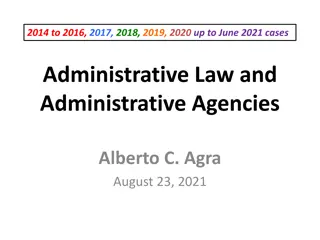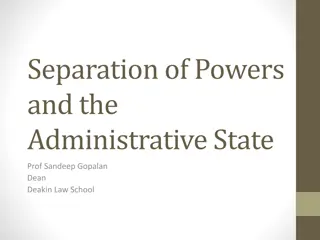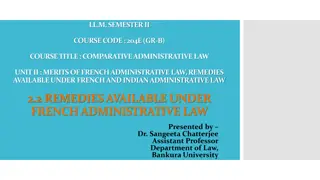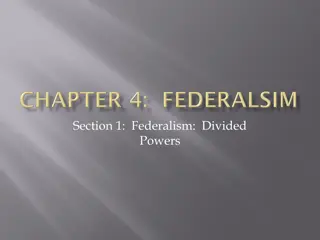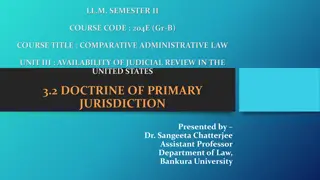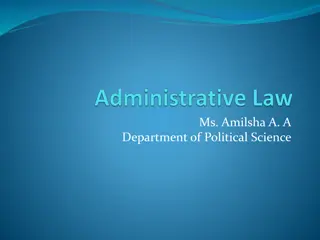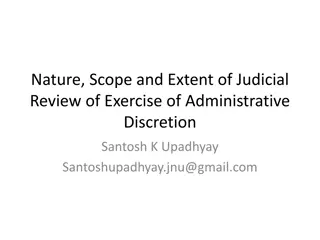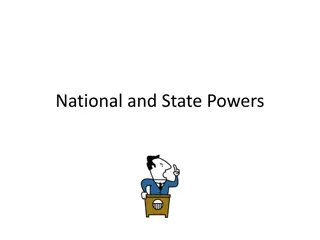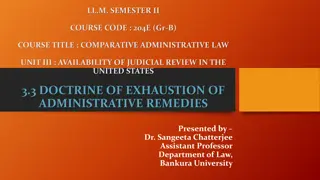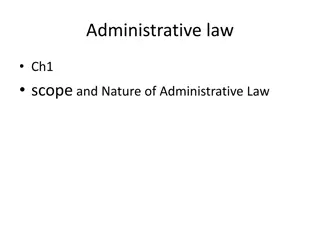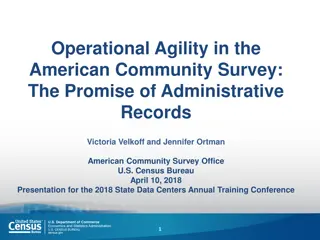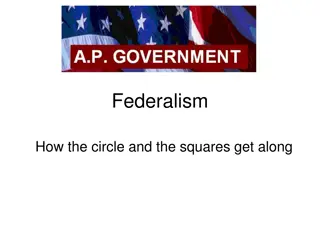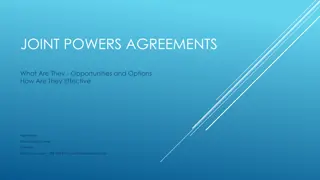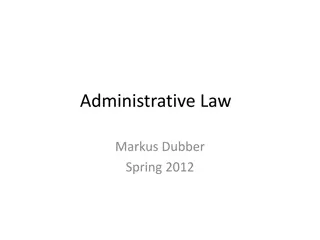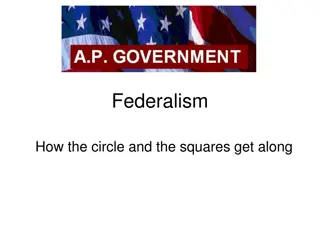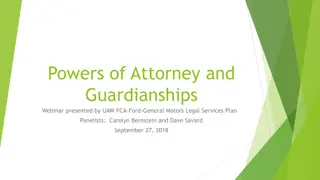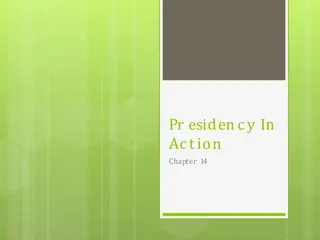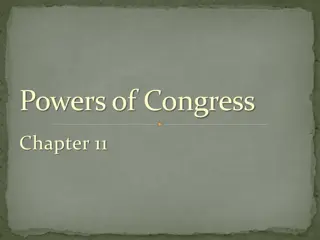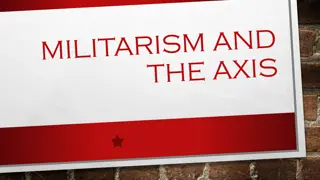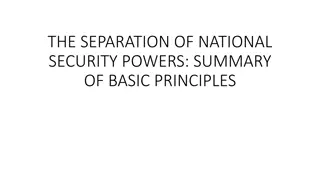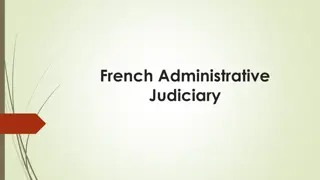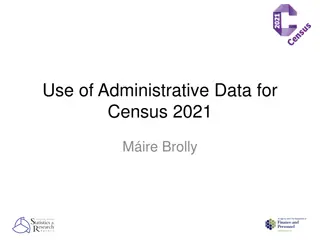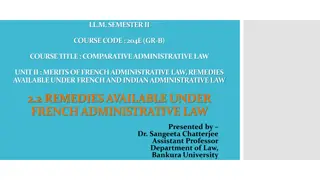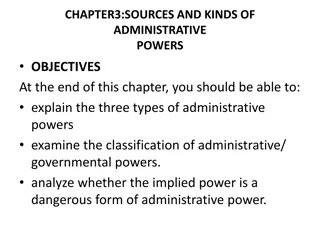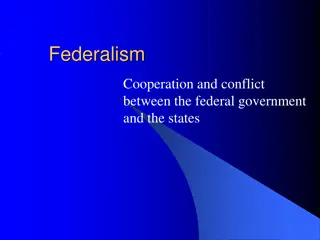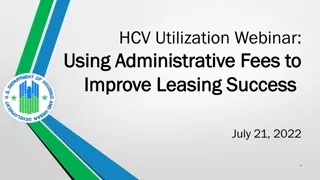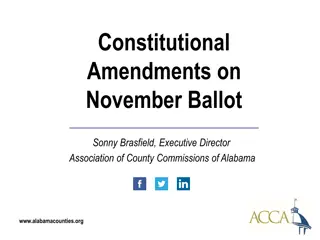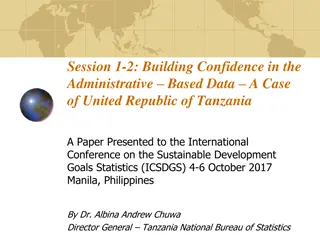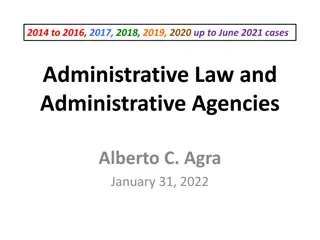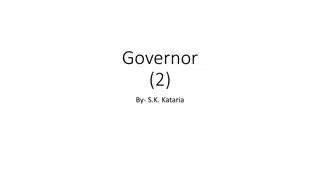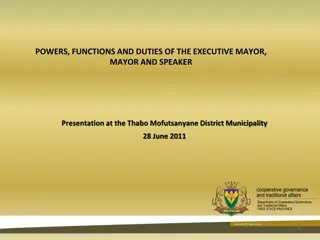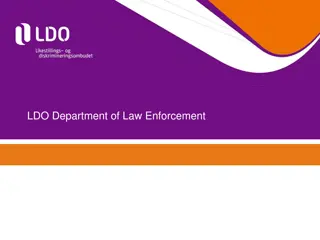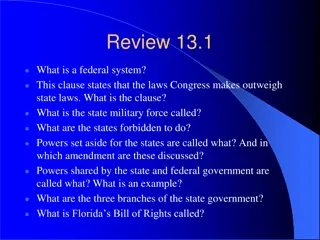READ⚡[PDF]✔ Emerging Space Powers: The New Space Programs of Asia, the Middle Ea
\"COPY LINK HERE ; https:\/\/getpdf.readbooks.link\/B004NNUV54\n\n[READ DOWNLOAD] Emerging Space Powers: The New Space Programs of Asia, the Middle East and South-America (Springer Praxis Books) | Emerging Space Powers: The New Space Programs of Asia, the Middle East and South-America (Springer Pra
1 views • 6 slides
The Powers of the Mayor in Police Matters
Explore the different facets of the mayor's police powers, including general administrative police, special police, and judicial police. Learn about the preventive and punitive roles of police, focusing on water supply and urban planning regulations. Delve into definitions and distinctions between a
4 views • 42 slides
Police Powers on the Street Webinar
Explore the powers and procedures of police officers on the street in this informative webinar featuring Sophie Leaver, a Police and Administrative Law Solicitor from Redfern Legal Centre. Topics covered include where police derive their powers, identity requests, personal searches, complaints proce
5 views • 44 slides
Overview of Administrative Law and Agencies in 2014-2021
This content provides an in-depth look at Administrative Law and Administrative Agencies from 2014 to June 2021. It covers the definition of Administrative Law, classifications, the role of Administrative Agencies, their creation, and examples of governing bodies. The material delves into the powers
2 views • 74 slides
Principles of Separation of Powers in the Administrative State
Understanding the principles of separation of powers - including the separation of functions, division of power, checks and balances, bicameralism, and federalism - is crucial in maintaining a system where governmental entities coexist harmoniously while preventing the concentration of political pow
0 views • 20 slides
Comparative Administrative Law: Remedies in French Administrative Law
The administrative justice system in France has evolved over the years, with various remedies available to challenge the lawfulness of administrative acts. The remedies are classified into formal and material categories based on historical developments and legal principles. Citizens can seek redress
1 views • 8 slides
Federalism: Divided Powers and Constitutional Framework
Federalism is a system where powers are divided between a central government and regional entities. It involves delegated, reserved, exclusive, and concurrent powers outlined in the Constitution. The supremacy of the Constitution is pivotal in establishing a unified federal government.
0 views • 5 slides
Doctrine of Primary Jurisdiction in Comparative Administrative Law
The doctrine of primary jurisdiction plays a crucial role in determining whether a court should yield to an administrative agency for certain issues. It helps in deciding which tribunal should take the initial action, especially in cases involving administrative discretion. This doctrine allows cour
1 views • 14 slides
Administrative Law: Definitions and Perspectives
Administrative Law encompasses principles governing public administration, delineating official powers, responsibilities, and remedies for rights violations. Explore insights from notable figures like Barthelemy, Ivor Jennings, and Dicey regarding administrative law's breadth, structure, and applica
0 views • 10 slides
Judicial Review of Administrative Discretion
Judicial review of administrative discretion aims to ensure that public authorities act within the bounds of their statutory powers and in the public interest. Courts do not act as appellate bodies but review decisions to ascertain proper consideration of relevant facts and absence of extraneous inf
0 views • 9 slides
National and State Powers in the United States
The Constitution grants specific powers to the national government, including expressed, implied, and inherent powers. States have reserved powers, and there are concurrent powers shared by both levels of government. The Supremacy Clause ensures that national laws take precedence over state laws. Ex
1 views • 13 slides
Doctrine of Exhaustion of Administrative Remedies in Comparative Administrative Law
The doctrine of exhaustion of administrative remedies requires litigants to pursue all available remedies with administrative authorities before seeking judicial review. Originating from the case of Myers v. Bethlehem Shipbuilding Corp, this doctrine aims to respect congressional intent and promote
1 views • 12 slides
Administrative Law: Scope and Nature
Administrative law is a branch of public law that governs the relationship between the state and its citizens, regulating how power is exercised by the executive branch and administrative agencies. It sets legal limits to ensure protection against abuse of power and arbitrariness, focusing on the or
0 views • 26 slides
Enhancing Data Quality through Administrative Records in American Community Survey
This presentation discusses the potential of using administrative records to improve data quality and reduce respondent burden in the American Community Survey. It explores key priorities, research findings, data source evaluation, and the process of simulating housing estimates using administrative
0 views • 19 slides
Federalism in the United States
Federalism in the United States involves the relationship between the federal government and state governments, with terms such as delegated powers, reserved powers, concurrent powers, and the Elastic Clause playing key roles. The aftermath of events like Hurricane Katrina and policies such as No Ch
1 views • 30 slides
Joint Powers Agreements: Opportunities, Options, and Effectiveness
Joint Powers Agreements (JPAs) enable public agencies to collaborate efficiently, providing services and facilities in line with various factors. Idaho Code outlines the purposes, definitions, and powers that can be jointly exercised. This legal framework facilitates cooperation among entities, alth
0 views • 34 slides
Classroom Guidelines for Lesson on Properties of Exponents
Follow the classroom guidelines for this lesson on Properties of Exponents. Learn about the rules of exponents, how to simplify expressions, and complete bell work matching equations with properties. Homework includes worksheets on horse-breeding and dog eating table scraps. Understand product, quot
1 views • 10 slides
Administrative Law and Refugee Protection Guidelines Analysis
Analysis of refugee protection guidelines and procedural fairness in administrative law, focusing on issues related to fear of persecution, credibility assessment, and hearing procedures before the Refugee Protection Division. The discussion also highlights the roles and powers of different members
0 views • 10 slides
Federalism: Powers, Relationships, and Key Terms
Explore the concept of Federalism through the relationship between the federal government (circle) and state governments (squares). Discover the powers involved such as Delegated, Reserved, Concurrent, and Prohibited powers. Delve into significant cases like McCulloch v. Maryland, terms like the Ela
0 views • 28 slides
Powers of Attorney and Guardianships Presentation
This presentation covers important aspects of Powers of Attorney and Guardianships, including types of powers of attorneys, when they are needed, who should be given power of attorney, responsibilities if named as an attorney, and considerations regarding revocation. It also discusses the need for g
0 views • 11 slides
Presidential Powers in the United States
The content discusses various powers of the President of the United States, including oath of office, executive orders, appointment power, removal power, diplomatic and military powers, treaties and agreements, commander-in-chief role, and legislative and judicial powers. It covers aspects like maki
0 views • 12 slides
Powers of Congress: Legislative, Implied, and Congressional Powers Explained
Explore the various powers of Congress, including legislative powers such as enumerated and implied powers, as well as congressional powers like regulating commerce and funding the government through taxes. Discover how Congress exercises authority granted by the Constitution to fulfill its roles an
0 views • 23 slides
Powers of Congress and Constitutional Framework
The powers of Congress in the United States are shaped and limited by two fundamental facts: limited government and a federal system. The Constitution grants Congress powers through expressed, implied, and inherent powers. The Congressional view of power varies between strict constructionists and li
1 views • 25 slides
The Formation and Goals of the Axis Powers in World War II
The Axis Powers, composed of Italy, Japan, and Germany, were established to challenge the existing European order and expand their influence. Through alliances and shared military ambitions, they aimed to dominate different regions of the world during World War II, with Germany targeting Europe, Ita
0 views • 8 slides
The Foundations of the Separation of Powers in Companies
The separation of powers in companies is based on the dualism of organs: the Board and General Meeting. The actual situation in companies diverges between large public companies with autonomous management and smaller private companies with owner-operators. The search for the foundations of the separ
1 views • 15 slides
The Separation of National Security Powers
The separation of national security powers involves the formalist view where Congress makes laws, the Executive executes them, and the courts interpret them. The branches' powers are often blurred, with Congress able to delegate lawmaking power to the Executive. The Executive can also acquire custom
0 views • 8 slides
Evolution of the French Administrative Judiciary System
Explore the rich historical development of the French Administrative Judiciary system from the pre-revolutionary period to modern times. Learn about key events such as the French Revolution, the creation of specialized courts, and the types of disputes handled by the administrative judiciary. Discov
0 views • 27 slides
Utilizing Administrative Data for Census 2021: Insights and Strategies
Providing a comprehensive overview of the historical use of administrative data for census purposes, this content delves into methodologies adopted in previous censuses, such as hand-delivery, online attempts, and administrative data enrichment. It also outlines plans for the 2021 census, focusing o
0 views • 19 slides
Comparative Administrative Law in France: Remedies Available under French Administrative Law
The administrative justice system in France has evolved over the years, balancing classicism and uniqueness. Various remedies are available before the administrative court to challenge the lawfulness of acts adopted by the administration or assert rights against it. Two main classifications of remed
0 views • 8 slides
Administrative Powers and Objectives
Explore the sources and types of administrative powers, including express, implied, and incidental powers. Delve into the classification of governmental powers and evaluate the implications of implied powers. Gain insights into how constitutional provisions and delegated legislation contribute to th
0 views • 16 slides
Federalism in the US Constitution
Forest Gump showcases the conflict between state and federal powers, exemplified by Governor George Wallace's refusal to desegregate the University of Alabama. The scenario underscores the concept of federalism, which isn't explicitly stated in the Constitution but is evident in the division of powe
0 views • 18 slides
Federalism: Cooperation and Conflict Between Governments
Federalism entails the division and sharing of powers between national and state governments, aiming for cooperative problem-solving. James Madison highlighted the need for checks and balances to control government abuse. The Constitution delegates specific powers to the national government while al
0 views • 9 slides
Enhancing Leasing Success with Administrative Fee Utilization
This webinar focuses on utilizing administrative fees to improve leasing success in the HCV program. It covers topics such as funding determination, best practices in administrative fee usage, and permissible uses of administrative fee funding. Participants can learn about how administrative fees ar
0 views • 29 slides
Alabama County Constitutional Amendments and Administrative Decision-Making Overview
Explore the Alabama Constitutional Revision Commission's recommendations for four ballot initiatives in November. Learn about county-recommended amendments and the Administrative Decision-Making Act, granting limited administrative powers to county commissions. The act focuses on specific areas whil
0 views • 12 slides
Challenges and Opportunities in Building Confidence with Administrative Data
This paper discusses the challenges and opportunities in building confidence with administrative-based data, focusing on the case of the United Republic of Tanzania. It covers topics such as the background of administrative data, fundamental principles of official statistics, legal aspects, incomple
0 views • 19 slides
Administrative Law and Administrative Agencies: A Comprehensive Overview
Administrative law encompasses the regulations governing government administrative agencies, outlining their organization and operations. This includes classifications, roles of administrative agencies, creation process, and examples of creating authorities like Congress, the President, and the Supr
0 views • 75 slides
Role and Powers of a State Governor in India
The Constitution of India outlines the executive powers and duties of a State Governor, including the ability to grant pardons, reprieves, and make orders on behalf of the government. The Governor is advised by a Council of Ministers led by the Chief Minister, with certain functions requiring the Go
0 views • 9 slides
Powers, Functions, and Duties of Executive Mayor, Mayor, and Speaker
Statutory powers, functions, and duties of the executive mayor, mayor, and speaker entail receiving reports, identifying municipality needs, recommending strategies, evaluating progress, overseeing service provision, and involving communities in municipal affairs. Delegation of powers, reporting to
0 views • 73 slides
The Administrative and Legal Framework of the Department of Law Enforcement
Administrative body like the LDO Department of Law Enforcement deals with complaints outside of courts, offering legal guidance, amicable solutions, and handling appeals without direct court involvement. The Anti-Discrimination Tribunal, a key entity, has powers to issue binding administrative decis
0 views • 7 slides
Overview of State Government and State Legislatures in Florida
A federal system is a political framework where power is divided between a central government and individual states. In this system, laws created by Congress take precedence over state laws. The supremacy clause enforces this hierarchy. States are prohibited from actions like declaring war or mintin
0 views • 12 slides
![READ⚡[PDF]✔ Emerging Space Powers: The New Space Programs of Asia, the Middle Ea](/thumb/21554/read-pdf-emerging-space-powers-the-new-space-programs-of-asia-the-middle-ea.jpg)


